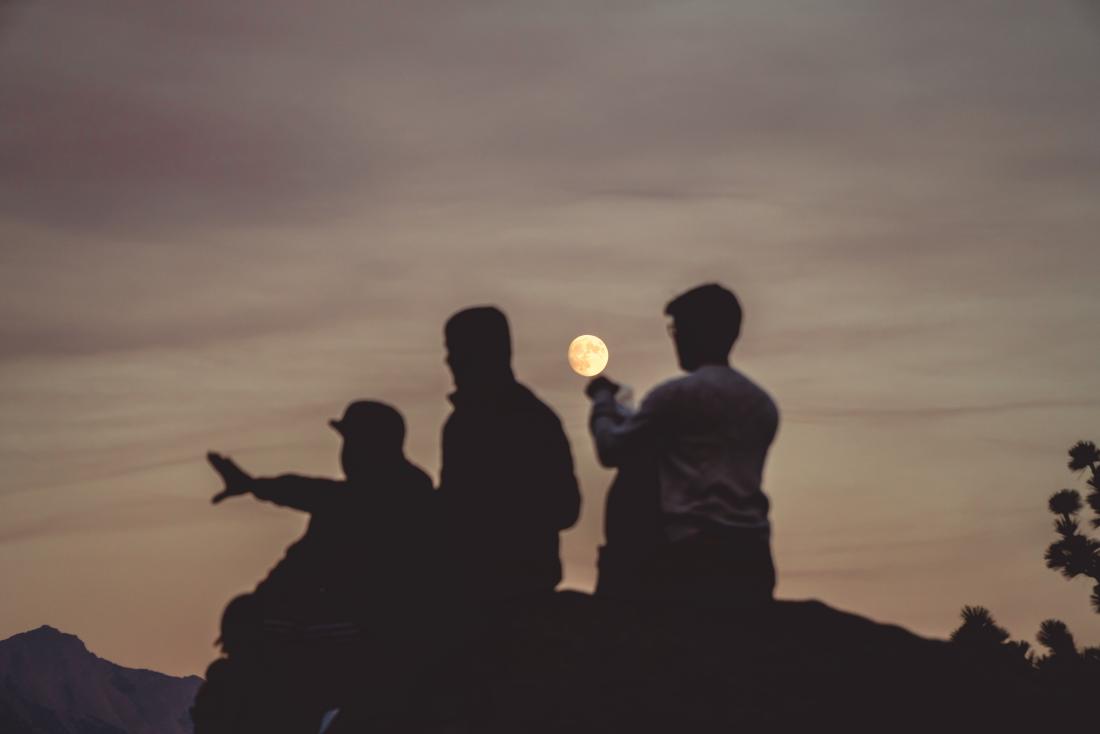What are the perks and problems of being a night owl?

In the collective imagination, night owls are free, creative spirits. Yet studies have shown that people who are more active at night face greater health risks. Do night owls experience more benefits or risks due to their rhythms? This Spotlight feature tackles this and related questions.
If, like Bram Stoker's famous character Dracula from the 1897 novel of the same title, you are most active when the moon is up and tend to go into hiding at sunrise, then you might not be a vampire, but you probably qualify as a night person or night owl.
Literature often romanticizes night owls. The fact that they keep unusual hours, and that they are most productive in the evenings or even at night can make them seem mysterious — both appealing and somewhat frightening.
"There is a romance about all who are abroad in the black hours, and with something of a thrill we try to guess their business," wrote Robert Louis Stevenson in Travels with a Donkey in the Cévennes (1879), his account of hiking in the French mountains.
Despite the romantic, mysterious image that books and movies might portray about night owls, many studies warn that people who frequently stay up until the early hours of the morning are placing their health and well-being at risk.
For instance, a 2018 study analyzing the relationship between bedtime habits and health in 433,268 adults found that night owls are more at risk of developing diabetes, and 10% more likely to die prematurely when compared with individuals who identified as morning people.
While few studies have analyzed what percentage of people among the world's populations are night owls, the research that does exist on this topic seems to suggest that a significant number of people do their best work in the evenings.
A study from 2011, which focused on college students in Saudi Arabia, and worked with 540 male and 219 female participants, all aged between 18–32, found that 26.9% of the study participants were "evening types," who performed better later in the day. The study's authors also add that research conducted in Western countries indicates that an even higher number of college students qualify as night owls in Western societies.
Given the high number of people who are naturally inclined to go to bed late and wake up late, it is essential to understand what impact their rhythms may have on their health, and why. In more general terms, research about individual body clocks and sleep-wake patterns can help us build a healthier and happier society.
In this Spotlight feature, we look at what makes a night owl a night owl, what other types there are, and how and why being a night or evening person impacts various aspects of health and well-being.
Circadian rhythms and chronotypes
"The morning was a wretched time of day for him. [...] On no morning of his life had he ever been in good spirits nor done any good before midday, nor ever had a happy idea, nor devised any pleasure for himself or others. By degrees during the afternoon he warmed and became alive, and only towards evening, on his good days, was he productive, active and sometimes, aglow with joy."
Thus goes the description, of Harry, a character in Herman Hesse's novel Steppenwolf, which first appeared in English in 1929. It is a good match for the daily patterns of night owls, who tend to be sluggish and unproductive in the mornings and become alert in the evenings.
But who is a night owl? To answer that question, we must first talk about body clocks. All humans — and other animals — have internal regulating mechanisms, or "body clocks," which allow a person to adapt to natural day or night cycles, "telling" them when to eat, rehydrate, have sex, and sleep.
As Dr. Roberto Manfredini — an expert in chronobiology and cardiovascular medicine from the University of Ferrara in Italy — and colleagues explain, "[t]he daily time-keeping system is called 'circadian' from the Latin 'circa diem,' which means 'approximately a day,' deriving from duration of a cycle of earth rotation."
However, not everyone's circadian rhythms coincide. Some people feel the most refreshed early in the morning, but feel like they're falling asleep by 9:00 p.m., and people who are most active in the evenings and have trouble waking up in the morning.
As you've surely guessed by now, these are the so-called morning larks and night owls, respectively or, in more scientific terms, "morning types" and "evening types."
"The degree of morningness or eveningness is one of the most important aspects of individual differences in circadian rhythms, a phenotype known as chronotype," write the authors of a 2017 study featured in the journal Chronobiology International.
To find out whether a person is a morning type or an evening type, researchers typically use a test called the Horne-Ostberg Morningness-Eveningness Questionnaire, which assesses subjective preferences for activities throughout a 24-hour cycle.
